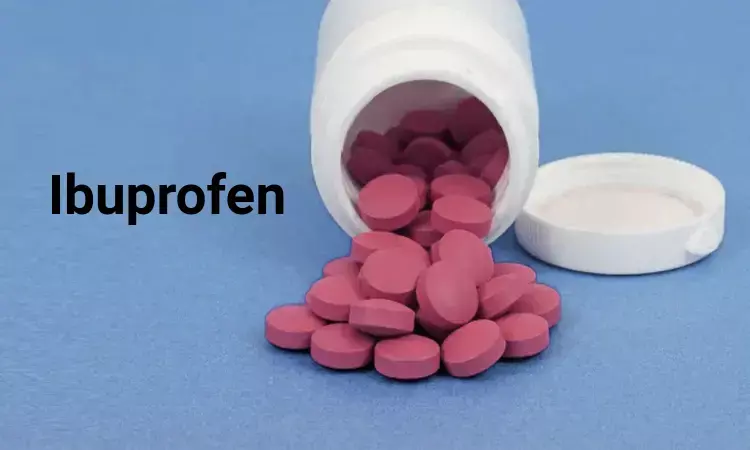- Home
- Medical news & Guidelines
- Anesthesiology
- Cardiology and CTVS
- Critical Care
- Dentistry
- Dermatology
- Diabetes and Endocrinology
- ENT
- Gastroenterology
- Medicine
- Nephrology
- Neurology
- Obstretics-Gynaecology
- Oncology
- Ophthalmology
- Orthopaedics
- Pediatrics-Neonatology
- Psychiatry
- Pulmonology
- Radiology
- Surgery
- Urology
- Laboratory Medicine
- Diet
- Nursing
- Paramedical
- Physiotherapy
- Health news
- Fact Check
- Bone Health Fact Check
- Brain Health Fact Check
- Cancer Related Fact Check
- Child Care Fact Check
- Dental and oral health fact check
- Diabetes and metabolic health fact check
- Diet and Nutrition Fact Check
- Eye and ENT Care Fact Check
- Fitness fact check
- Gut health fact check
- Heart health fact check
- Kidney health fact check
- Medical education fact check
- Men's health fact check
- Respiratory fact check
- Skin and hair care fact check
- Vaccine and Immunization fact check
- Women's health fact check
- AYUSH
- State News
- Andaman and Nicobar Islands
- Andhra Pradesh
- Arunachal Pradesh
- Assam
- Bihar
- Chandigarh
- Chattisgarh
- Dadra and Nagar Haveli
- Daman and Diu
- Delhi
- Goa
- Gujarat
- Haryana
- Himachal Pradesh
- Jammu & Kashmir
- Jharkhand
- Karnataka
- Kerala
- Ladakh
- Lakshadweep
- Madhya Pradesh
- Maharashtra
- Manipur
- Meghalaya
- Mizoram
- Nagaland
- Odisha
- Puducherry
- Punjab
- Rajasthan
- Sikkim
- Tamil Nadu
- Telangana
- Tripura
- Uttar Pradesh
- Uttrakhand
- West Bengal
- Medical Education
- Industry
Ibuprofen at high doses linked to increased risk for liver injuries in new study

US: Ibuprofen, one of the most commonly used over-the-counter NSAIDs may cause very serious side effects than it was thought earlier, according to the researchers at the University of California. This study was published in the Scientific Reports.
Ibuprofen, an inhibitor of prostanoid biosynthesis, is a common pharmacological agent used for the management of pain, inflammation, and fever. However, its chronic usage at high doses is associated with increased risk for cardiovascular, renal, gastrointestinal and liver injuries. The underlying mechanisms of ibuprofen-mediated effects on the liver remain unclear.
Gomes, postdoctoral researcher Shuchita Tiwari, and colleagues had dosed aged-matched male and female C57BL/6J mice with a moderate amount of ibuprofen for a week -- equivalent to an adult human taking about 400 mg of the drug daily. Advanced mass spectrometry at UC Davis' Proteomics Core Facility was used to capture information on all the metabolic pathways in liver cells.
The researchers found that at least 34 different metabolic pathways were altered in male mice treated with ibuprofen. They include
(1) energy metabolism,
(2) protein degradation,
(3) fatty acid metabolism and
(4) antioxidant system
Independent validation of protein changes in energy metabolism and the antioxidant system was carried out by Western blotting and showed sex-related differences. Proteasome and immunoproteasome activity/expression assays showed ibuprofen induced gender-specific proteasome and immunoproteasome dysfunction in the liver.
The researchers also found that ibuprofen had different, and in some cases, opposite, effects in the livers of male and female mice eg., the proteasome -- a waste-disposal system that removes unwanted proteins -- responded differently in males and females. Ibuprofen elevated the activity of cytochrome P450, which breaks down drugs, in females but decreased it in males. The elevation in cytochrome P450 could mean that other drugs taken with ibuprofen could stay in the body for a longer duration in males and this has never been shown before.
Overall, the study indicated that moderate doses of ibuprofen can affect the liver more significantly than previously reported which includes a)proteasome dysfunction,
b)increased levels of H2O2,
c)impaired glycolytic pathways and
d)altered fatty acid synthesis and oxidation.
For further reading click on the following link,
https://www.nature.com/articles/s41598-020-60053-y
MBBS
Dr K B AARTHI-has completed MBBS from SRM UNIVERSITY TAMIL NADU,Her interest is in the field of Pediatrics and Anaesthesia, also passionate in doing research and publishing articles.She joined Medical Dialogues in 2020 and publishes health news and medical updates. Email: editorial@medicaldialogues.in. Contact no. 011-43720751,9786713226
Dr Kamal Kant Kohli-MBBS, DTCD- a chest specialist with more than 30 years of practice and a flair for writing clinical articles, Dr Kamal Kant Kohli joined Medical Dialogues as a Chief Editor of Medical News. Besides writing articles, as an editor, he proofreads and verifies all the medical content published on Medical Dialogues including those coming from journals, studies,medical conferences,guidelines etc. Email: drkohli@medicaldialogues.in. Contact no. 011-43720751


